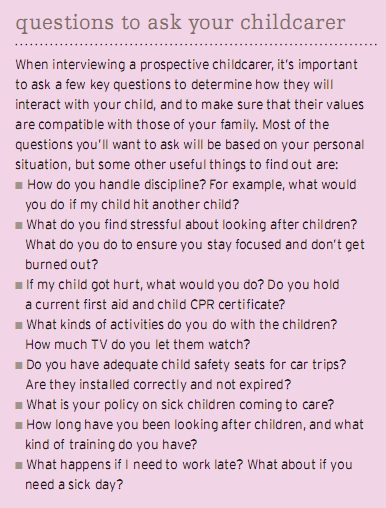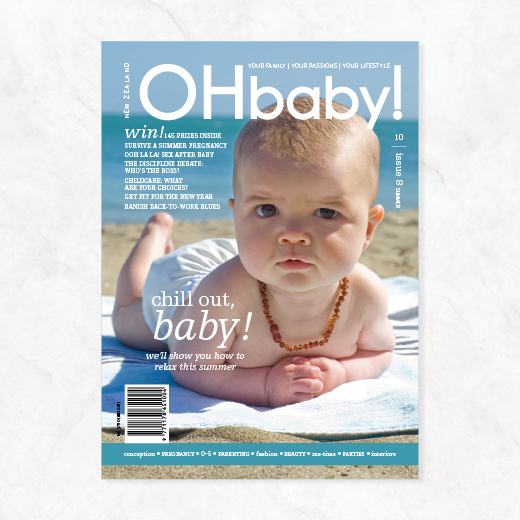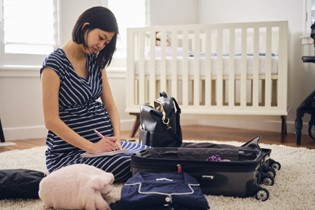Daycare alternatives

The fact is, working mothers need childcare. But what are the options besides daycare centres? Here are three alternatives.
In-home care
If work means you can't stay home with your child, why not place him or her with another parent in their family home? "At home, your child remains in a calm, predictable and loving environment. The running of the household and routines form the basis of stress-free learning," explains Jenny Yule, founder of PORSE (www.porse.co.nz). "With the current childcare debate about what's best for babies, it is vital that we encourage childcare services and programmes that will strengthen the attachment relationship between babies and parents and/or carers."
PORSE is arguably the largest and most well-respected of several in-home childcare facilitators nationwide. It's role is to administer and encourage quality childcare programmes through training and support of its caregivers. Parents who contact PORSE are visited by a member of the local area office, who asks questions about their childcare needs and then matches the family with potential suitable caregivers. It is then up to the parent to make contact and arrange to visit the caregiver to determine whether they are a good match. Like any other person who will be caring for your child, parents are encouraged to observe the caregiver and ask questions, and "trial" time for their child with the caregiver to see how they interact. Ongoing support is provided by the local and head offices, and the caregivers are visited and assessed regularly.
PORSE maintains strict guidelines around the number of children who may be looked after in a caregiver's home at any one time (no more than four children, and of those four, no more than two children may be under the age of two). PORSE caregivers are often mothers looking after one or more of their own children, who want to earn a bit of money while staying home with their kids. Rates of pay for childcarers vary (the average of the auckland caregivers I spoke to was $7 per child per hour), and families are eligible for the 20 Hours ECE subsidy for three- and four-year-olds. This works out to about the same rate as a daycare centre, without the large-scale environment and its concurrent issues.
One thing that PORSE can offer parents is flexibility - a lifesaver when those occasional late nights at work crop up. Because your child bonds with his or her caregiver and the other children in care - the "cast of characters" is consistent so bonds are easier to form - and because PORSE caregivers are committed to looking after your child in the same way you would look after them if you were at home, it's easier to negotiate things like schedules if you need to work for a few more hours every so often (I know about this firsthand, as my daughter has been looked after by a PORSE educator since before we started this magazine in early 2008). Your child is already a part of his or her caregiver's family routines, so it's just as easy to give your little one dinner with the rest of the family and have them settle down for the evening before you can come to collect them. Your stress levels go down, and your child is well looked-after.
Nannies
Often seen as the sole province of wealthy celebrities or parents with significant amounts of money, nannies can certainly be on the pricey side when it comes to personalised childcare. Making upwards of $16-$20 an hour, nannies look after your child in your own home, and usually only look after your own child or children (not their own or someone else's, like in an in-home care situation). If you have more than one child in childcare, however, the cost can be justifiable (our website editor Emma has four children under the age of six and employs a nanny three days a week). Children stay in their familiar home environment, and if the nanny has a car (or if you are able to provide one for their use during the hours they work for you), they can even attend their usual music sessions and playgroups.
Nannies also usually serve another purpose which parents find quite attractive - they may be willing, as part of their job description, to do light housework and chores such as the children's laundry, grocery shopping, tidying the children's rooms and common areas such as the lounge and kitchen, and even prepare family dinners. If you're already paying a cleaner, you might be able to keep up with the housework yourself if your nanny is willing to pick up some of the child-related chores.
Finding a nanny is similar to finding an in-home childcarer in that the best way to find one is to go through a facilitator - this is where a reputable nanny agency will be worth its eight in gold, but you should also check any prospective nanny's references yourself to make sure they're legitimate. Some nannies are trained as childcarers and may have an ECE degree or nanny certification, and the rate of pay depends on their level of experience and qualifications.
One advantage of having nanny is that your children will have one continuous caregiver who may become a real part of the family. Your own family routines and your child's individual needs are respected and looked after, and you have a lot more say in how your nanny cares for your child as they are your employee. Another advantage is that when your children are sick, your nanny will be there to look after them - costing you less time off of work. And if your nanny gets sick, some nanny agencies will arrange for a temporary nanny to fill in while she is off.
Au pairs
Have you ever considered hosting a foreign student in your home? If you're open to cultural experiences, an au pair might be just the right kind of childcare for your family. Usually from a European country, an au pair is similar to a nanny in that she'll do childcare and light housework, but she'll also live with your family. You provide room and board, and a weekly payment of around $125 for 20-25 hours of childcare, $150 for 30-35 hours, and $150-$200 for 35-40 hours. Au pair placements are typically for six to 12 months at a time. This can be a very affordable option for families who have the space to house an extra person, but still want the personalised care in their own home environment that au pairs provide.
If you are in need of part-time childcare, a demi-pair is an option as well. Demi-pairs are like part-time au pairs who also attend language classes during the week, and placements are usually shorter, from three to six months. They also cost significantly less than an au pair (around $60 a week), but the childcare hours you will receive are reduced. However, if you are only working part-time, a demi-pair is a good option.
"Generally, an au pair does the same tasks as a nanny - childcare, some cleaning, and cooking. However, having an au pair means so much more because of the cultural aspect and the flexibility it gives to you as a parent. Your child will get the opportunity to learn a new language and encounter something totally different," explains Sophie van Moortel, Managing Director of Linguavision Ltd (www.linguavision.com or www.aupairnewzealand.com), a nationwide au pair placement service. This is a real bonus that other in-home childcare situations can't offer - the unparalleled enrichment your family will receive from having someone from another culture living with and becoming part of your family.
Like all reputable in-home caregivers, au pairs are screened with police checks and generally already have some childcare experience. They are also required to have a good level of English - so communication won't be as hard as you might think. An au pair is an excellent option for mums returning to the workforce part-time as well, and can be great for full-time working parents who have a new baby and a toddler in the house.


AS FEATURED IN ISSUE 8 OF OHbaby! MAGAZINE. CHECK OUT OTHER ARTICLES IN THIS ISSUE BELOW
















